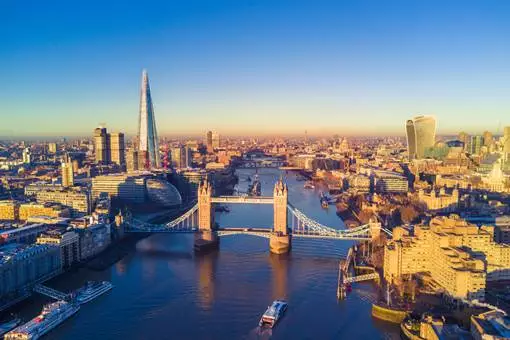Green design could reduce energy bills
- 23rd April 2015
- Sustainable Business

Could energy efficiency help businesses? We look into the impact sustainable design and green buildings could have on the UK economy.
Construction firm Balfour Beatty recently created the UK’s most environmentally friendly building for Girton College at the University of Cambridge. The new student halls receive half of their energy from renewable sources with a design that surpasses efficiency guidelines by 40%.
In addition, new innovations - such as window sensors that automatically detect the temperature and adjust the building’s heating accordingly - have been used in order to cut down on unnecessary energy use.
Sustainability and energy efficiency in construction and architecture are increasingly important to businesses. As a result, the adoption of a greener approach to building is transforming the way businesses approach environmental issues.
Sustainable design is becoming a global trend
Dr Steve Priddy, Director of Research at London School of Business & Finance, said: “It’s great to hear of a major player such as Balfour Beatty making such innovative inroads into the student hall sector.
“The UK construction sector is radically transforming itself in areas such as building information modelling, 3 and 4D design, applying the circular economy to the reuse of materials, disruptive forms of energy efficiency, alongside some of the best architectural design in the world.”
He added: “The Green Building Council network has for some years now actively positioned itself in the de-carbonisation of building, and this is leading to internationalisation and globalisation of design codes – trends which are to be applauded.”
In the UK, almost 50% of carbon emissions come from buildings. With more focus on sustainable building design and limiting waste, the construction industry could drastically improve energy efficiency throughout the nation. Indeed, research undertaken by the CBI has indicated that this could reduce energy bills for businesses by up to 15%.
Focusing on environment could save businesses money
David Hilton, Managing Director of Vickers Energy Group, said:“Our latest research shows that British industry is wasting half a billion pounds on energy over the winter months, emitting 7.4 million tons of unnecessary C02.
“It’s never been more important for businesses to get on board by reducing energy usage, particularly with the incentives and pressure to think about how they can become truly sustainable.”
Martin Orrill, Head of Technology and Innovation at British Gas Business, agreed with Mr Hilton.
“Energy savings from 50% to 70% are not unusual compared with conventional technologies, and result in similar cuts to carbon emissions,” he said.
Mr Orrill also mentioned that smart meters could help businesses to track their bills, identifying where they could save money. One common finding has been that up to half of business’ electricity bills are spent on power outside of the traditional working day (such as leaving the lights on at night).
Cutting down on these expenses could lead to massive savings, as well as having a positive impact on the environment.
Other News
Citi Microentrepreneurship Awards celebrate responsible business finance sector
Sixteen businesses that have accessed responsible business finance have been announced as finalists at the Citi Microentrepreneurship Awards. The awards,…
£70 million regeneration plan for London launched
A £70 million regeneration plan to support growth and community development in London has been launched by the city’s mayor,…
Wind and solar power could challenge nuclear energy
The value of nuclear energy, and in particular the troubled Hinkley Point, is being questioned in light of the possibilities…



